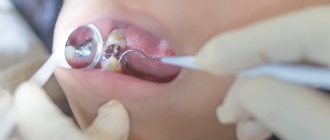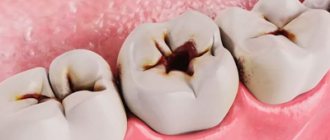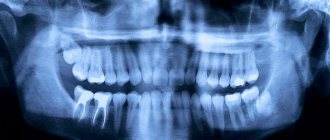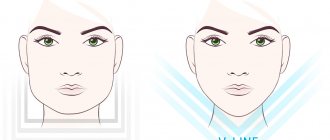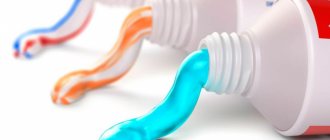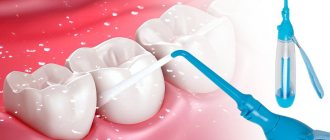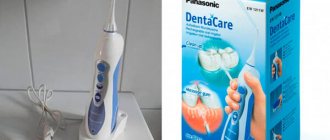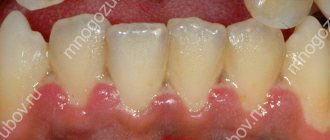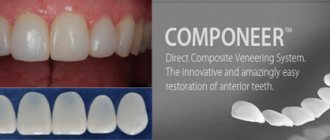People receiving chemotherapy drugs may develop mouth ulcers as a side effect of the drugs. The ulcers usually go away on their own when treatment ends.
Chemotherapy drugs are powerful anti-cancer drugs that kill cells as they divide. Chemotherapy is more likely to kill cancer cells than healthy cells because cancer cells tend to divide and multiply faster. However, chemotherapy also kills healthy cells that are in the process of dividing. Damage to healthy cells in the mouth can make it difficult to fight pathogens, which can lead to the development of ulcers.
Causes of stomatitis during chemotherapy
The main goal of chemotherapy is to stop cell division. The drugs used do not have a targeted effect; they negatively affect undamaged areas, as a result of which the recovery function is reduced.
Epithelial cells are affected, the damage of which is one of the main causes of the development of stomatitis during chemotherapy . The drugs used in therapy provoke drying of the oral mucosa, the appearance of ulcers, cracking of teeth, and bleeding gums.
There are mainly three manifestations:
- ulcerative;
- catarrhal;
- aphthous.
Initially, patients complain of the appearance of redness and itching; subsequently, ulcers are observed on the affected areas, which subsequently burst, and in their place lesions with a diameter of up to 1 cm are formed.
stomatitis during chemotherapy on their own; it is accompanied by the following symptoms:
- salivation increases;
- observes an increase in temperature;
- decreased appetite;
- pain in the oral cavity.
If you do not contact specialists in time, bleeding ulcers may occur. Untimely intervention by specialists can lead to complications and the spread of infection, which will require longer treatment.
Diagnosis of stomatitis during chemotherapy
To more quickly identify and prescribe effective treatment, you need to contact the specialists of the Vitamed clinic as soon as possible. Diagnosis of stomatitis during chemotherapy can be carried out by a council of doctors from a dentist, oncologist and chemotherapist.
Unfortunately, there is no equipment for diagnosing this disease or determining the stage of its development. A specialist visually examines the oral cavity and makes a diagnosis based on observations.
Stomatitis after chemotherapy is identified by a dentist based on specific signs; a visual examination of the external structure of the ulcers and their location in the oral cavity is carried out.
The effect of chemotherapy on oral health
Are you undergoing chemotherapy treatment? If so, the information below may be helpful to you. While chemotherapy helps cure cancer, it can also have side effects on your body. Some adverse reactions affect the oral cavity, which may require interruption or complete cessation of treatment.
The information below will help you prevent oral cancer and get the most from your cancer treatment.
To prevent serious problems, see your dentist at least two weeks before starting chemotherapy.
The dentist can help prevent oral lesions.
What effect does chemotherapy have on the oral cavity? Chemotherapy involves the use of drugs to treat cancer. These drugs kill cancer cells, but they can also harm healthy cells, including those in the mouth. Side effects of chemotherapy can lead to damage to the teeth and gums, oral mucosa and salivary glands.
It is important to know that adverse reactions that occur in the mouth can be serious.
- Adverse reactions may be painful and may make it difficult to eat, swallow, and speak.
- There is an increased chance of infection, which can be dangerous if you are undergoing cancer treatment.
- If the side effects of chemotherapy are severe, they may prevent you from continuing cancer treatment. In this case, your doctor will have to reduce the course of treatment or even stop it.
What side effects can chemotherapy have on the oral cavity? Chemotherapy in the mouth may cause certain side effects, and these may vary from person to person. The types of adverse reactions depend on the drugs used as part of chemotherapy and on the body’s individual reaction to them. Such adverse reactions may only persist during treatment or for a short period after its completion.
| You can see or feel most of these problems. Check your oral health daily. |
Why should you visit the dentist? It may surprise you to know that the dentist plays an important role in cancer treatment. Visiting your dentist before starting chemotherapy can prevent serious damage to your mouth. Adverse reactions in the oral cavity are often associated with problems and diseases present before the start of chemotherapy. Not all oral lesions are preventable, but the fewer side effects you experience, the more likely you are to continue your chemotherapy treatment as scheduled.
When should you visit the dentist? You should see your dentist at least two weeks before starting chemotherapy . If you have already started chemotherapy without seeing your dentist, make an appointment as soon as possible.
Actions of the dentist or dental hygienist:
- Checking the condition of teeth;
- Carrying out radiographic examination of teeth;
- Treatment of oral lesions;
- Provide oral care instructions to help prevent adverse reactions.
The dentist performs a complete examination of the oral cavity.
What can you do to maintain oral health? There are many things you can do to keep your mouth healthy during chemotherapy. The first step is to visit your dentist before starting cancer treatment. After starting treatment, it is important to perform a daily self-exam of your mouth to look for ulcers and other changes. Below are tips to help you prevent and promptly treat oral lesions:
Keep your mouth moist.
|
Clean your mouth, tongue and gums.
|
If you experience oral pain, pay attention to your diet.
- Choose foods that are easy for you to chew and swallow
- Eat small bites, chew slowly and take small sips.
- Eat soft, liquid foods such as cereal, mashed potatoes, and omelettes.
- If you have difficulty swallowing food, soften it by adding gravy, sauce, broth, yogurt or other liquids.
Eating can be made easier by drinking small sips.
If you experience pain in your mouth, contact your doctor or nurse.
- Help them identify medications that will help control pain;
- If the pain persists, ask your doctor to prescribe a stronger drug.
Remember that you should not consume/use:
|
Do children experience similar oral lesions? In children, chemotherapy causes side effects that depend on the age of the child.
The most common problems include dental damage. There may be slow growth of permanent teeth, the appearance of which may differ from the appearance of normal teeth. Teeth may also fall out. The dentist should examine the child's jaws to identify possible problems with tooth growth.
Before starting chemotherapy, take your child to the dentist. The dentist must carefully examine the child's mouth and remove loose teeth and teeth that may become loose during treatment. Ask your dentist or dental hygienist how you can help your child with oral care.
The child has special oral care needs.
Remember:
- Before starting anti-cancer treatment, you should visit your dentist.
- Take good oral care during treatment.
- Consult regularly with your oncologist and dentist about any types of oral lesions that occur to you.
Consult your oncologist or dentist if you experience any oral lesions.
Return to top
Gratitude
The following individuals assisted in the development, revision and field testing of all campaign publications. The campaign's sponsors thank them for their efforts.
| Scientific Committee | |
| Jeri Backer, Certified Dental Hygienist, MS, University of Kansas City, Missouri Kansas City, Missouri Susan L. Beck, R.N., Ph.D., AOCN University of Utah Salt Lake City, UT Marylin Dodd, RN, Ph.D. University of California, San Francisco San Francisco, CA Joel Epstein, DMD, MSD, FRCD University of Washington Seattle, WA Philip Fox, DDS Bethesda, MD | Deborah MasGear, CMC, Ph.D., University of Pennsylvania, Philadelphia, Pennsylvania Douglas Peterson, DMD, Ph.D. University of Connecticut Farmington, CT Mark M. Schubert, DDS, MSD University of Washington Seattle, WA John Wingard, MD University of Florida Gainesville, FL |
| Field Testers | |
| Olubunmi Abayomi, MD Howard University Hospital Washington, DC Alice Bass, BSN, OCN Greater Southeast Community Hospital Washington, DC Betsy Bischoff, RN, MS Georgetown University Medical Center Washington, DC Andrea Bonnick, DDS Howard University Washington, DC Dorothy Chesley, RN, Ph.D. Texas Nursing Foundation Austin, TX | Nancy E. Leupold, MS Support for People with Oral and Head and Neck Cancer (SPOHNC) Locust Valley, NY Alice Mahan, BS, RTT Howard University Hospital Washington, DC MiKaela Olsen, RN, MS, OCN UCSF Stanford Health Care Stanford, CA Peter Passero, DDS Prizm Dental Partners and Management Group McLean, VA K. Vendrell Rankin, DDS Baylor College of Dentistry Dallas, TX |
“Your Contribution to Oral Health and Cancer Treatment” is an information and educational campaign funded by the National Institute of Oral and Craniofacial Research (NIDCR) through the National Oral Health Information Center (NOHIC). The campaign is a collaboration with the National Cancer Institute, the National Institute of Patient Care Research, the Centers for Disease Control and Prevention, and the Friends of the National Oral and Craniofacial Institute. the NIDCR).
National Oral Health Clearinghouse Recipient: Oral Complications of Cancer Treatment Study Group 1 NOHIC Drive Bethesda, MD 20892-3500 Fax: 301-907-8830 Email: mail
upper
NIH publication number: 02-4361
Copyright Information: © 2002, 2003, Colgate-Palmolive Company. All rights reserved.
Copyright © 2002, 2003 Colgate-Palmolive Company. All rights reserved.
11/15/2010
Consultation with an oncologist and chemotherapist at the Vitamed clinic
To identify cause-and-effect relationships in the process of treating the disease, the help of highly specialized specialists may be required, since the disease was provoked by chemotherapy .
It is not difficult to remove the active impact of the disease on the oral cavity; it is necessary to identify the causes of its manifestation, what drugs provoked stomatitis during chemotherapy . This approach to treatment will allow you to avoid its occurrence in the future, since it is of a recurring nature.
You can contact us right now and make an appointment with a specialist who will help you overcome the disease as soon as possible.
9-20
Diet
Spicy, salty and sour foods can further irritate ulcers. Avoid eating foods that have a dry, hard, crunchy or sticky texture.
Examples of foods and drinks to avoid:
- chilli;
- peppercorns;
- salt;
- citrus;
- tomatoes;
- crispy bread;
- crackers;
- chips;
- pretzels;
- pickled products;
- peanut butter;
- carbonated drinks;
- caffeinated drinks;
- alcohol.
Whenever possible, a person should choose foods that are easy to chew and swallow.
These products include:
- vegetable stew;
- mashed potatoes;
- scrambled eggs;
- baked beans;
- yogurt;
- cottage cheese.
It is important to ensure that these foods are cooled to room temperature before consumption. Hot food can cause irritation in the mouth.
The following practices may also help relieve mouth pain while eating:
- take small pieces of food and chew them thoroughly;
- drink water with meals to reduce discomfort when swallowing;
- take painkillers 30 minutes before meals;
- using gels such as benzocaine (Benzocaine) before meals to prevent pain while eating.
Keep your mouth clean
Keeping your mouth clean is important to prevent infection. The American Cancer Society (ACS) provides the following oral care plan for people with mouth ulcers:
Brush your teeth
If you have mouth ulcers, people should brush their teeth daily, except for areas that hurt or bleed.
People should also aim to brush their teeth about 30 minutes after eating and every 4 hours throughout the day.
The following tips can help prevent mouth irritation when brushing your teeth:
- Use a toothbrush with very soft nylon bristles. Soak the bristles in warm water before brushing to further soften them.
- If brushing with a regular toothbrush is painful, use soft, foamy swabs to clean your teeth.
- Use a non-abrasive toothpaste that contains fluoride.
- Avoid toothpaste that contains hydrogen peroxide, as this may further irritate your mouth.
- After brushing, rinse your toothbrush in hot water and store it in a cool, dry place.
Mouth rinse
People should avoid using store-bought mouthwash, which usually contains alcohol and other irritants.
Instead, the ACS recommends rinsing your mouth with one of the following mixtures:
- 1 teaspoon of baking soda per 2 cups of water;
Or
- 1 teaspoon sea salt;
- 1 teaspoon baking soda;
- 1 liter of water.
It is necessary to mix the solution thoroughly so that the ingredients are dissolved properly.
Caring for dentures
Wearing ill-fitting dentures increases the risk of ulcers during chemotherapy. People should avoid wearing them during treatment.
Even properly fitted dentures can cause problems if ulcers form underneath them. If this occurs, dentures may need to be removed between meals and at night to allow the sores to heal.
Lip care
Using the following remedies may help treat dry, sore lips:
- petrolatum;
- chocolate butter;
- soft lip balm.
